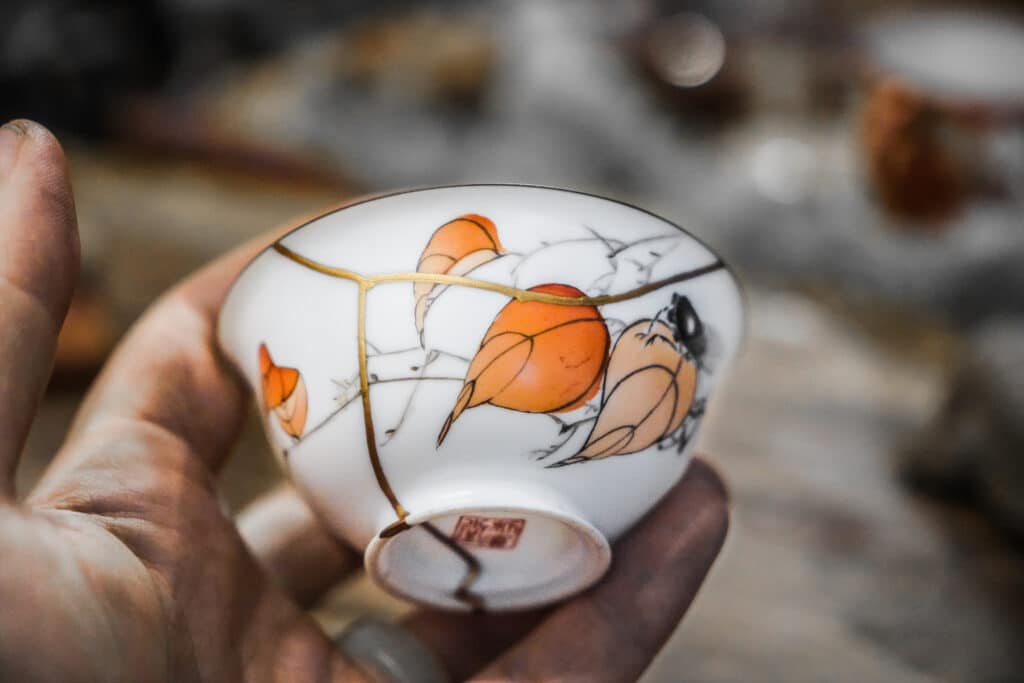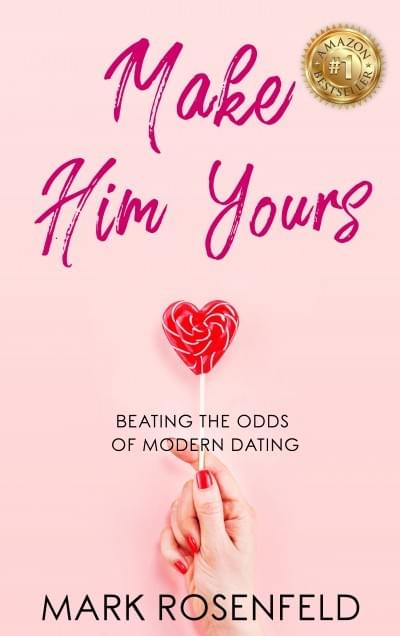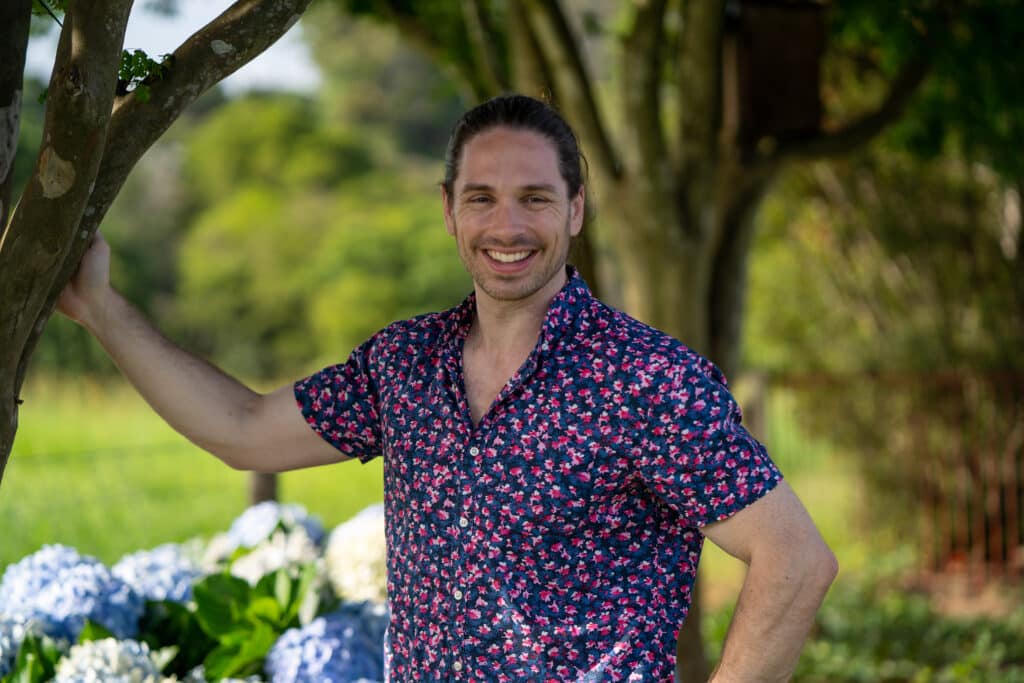Have you ever broken a glass or a vase and thought “Aww, now I have to throw that out?” Or maybe you took a closer look at it and thought, “Wait, I have glass glue or ceramic glue. Maybe I could put it back together.”
Sometimes, the same can be done in relationships.
There’s an ancient Japanese art form called Wabi Sabi that finds beauty and perfection in imperfection.
When an object is broken, the cracks are filled with gold. They believe that when something’s suffered damage, it can be mended — and because it has a history, it becomes more beautiful.
How would your relationship change if you adopted the Wabi Sabi philosophy?
Sure, there are some that are broken beyond repair. Major boundary violations occur. Differences are irreconcilable. Ways cannot be changed.

But what if there were a way to love yourself, love your partner, and love the imperfections in both of you?
Wabi Sabi Love, a book by Arielle Ford, teaches couples to apply the saying, “We come to love not by finding a perfect person, but by learning to see an imperfect person perfectly.”
No, this is not saying you should give a pass on chronic bad behavior, put up with ongoing abuse, or stick your head in the sand if you’re in a dangerous situation.
It is about growing a generous and forgiving heart. It’s about accepting that most couples – even happily committed ones — have had conflicts that at some point nearly broke them.
 Ask yourself this question: What if the key to having all my dreams come true is to find a way to fall in love with some irritating trait in my partner? What if I could shift from annoyed to enjoyed?
Ask yourself this question: What if the key to having all my dreams come true is to find a way to fall in love with some irritating trait in my partner? What if I could shift from annoyed to enjoyed?
How would your relationship improve if you could find a way to embrace (or at least accept) what your partner does and loves?
Gratitude is one way to get there. Many of my clients adopt a gratitude practice as an aspect of their work with me.
Learning to view our partner’s behavior through a kinder, gentler lens is another. Usually when we’re annoyed, we’re feeling self-righteous. You believe your way is THE way and his way is the WRONG way – a recipe for stress and tension.
Get honest with yourself: What payoff do you get finding fault in your partner? What does being annoyed keep you from having?
“Even in the darkest, most frightening moments of a relationship, it’s possible to move forward when you speak your truth with sincerity and vulnerability. This is how you evolve beyond your wounds to heal and create a stronger bond.”
How many more times are you willing to allow that habit or event or situation to annoy you? You can either accept it or change it. You can’t change other people, of course, but you can change your outlook.
What if that annoying behavior exists solely to teach you how to become a more loving, compassionate person? What are the “gifts” you can take from being more aware and more accepting of your partner’s faults and flaws?

Think of a few things that really annoy you about your current or former partner. For example: Maybe he leaves his shoes in the walkway or globs of toothpaste on the bathroom vanity … maybe he steals the covers at night.
The next time you’re about to fault your partner, ask yourself:
- Why do I think he’s wrong?
- Where does this belief come from?
- What will happen if I give up my self-righteous frustration and just let it go?
In my client sessions, a lot of women are working on the relationship skill of initiating difficult conversations, speaking up for themselves, and expressing anger and sadness in a healthy way.
You can do this too by building a RAFT: Something you’re Reluctant And Frightened To Tell (share). You can speak your truth by beginning the conversation like this:
“What I’m about to say makes me uncomfortable, but I value our relationship so much I’m willing to go beyond my comfort zone…”
Own your feelings with “I” statements and let your partner know you’re committed to deepening intimacy.
Practicing intimacy means feeling through fear: Intentionally opening yourself up when you would rather close down, giving yourself when you would rather hide.
Even in the darkest, most frightening moments of a relationship, it’s possible to move forward when you speak your truth with sincerity and vulnerability. This is how you evolve beyond your wounds to heal and create a stronger bond.
When you apply the principle of Wabi Sabi, you can care for your partner with an open heart and an open mind — and receive what he’s giving, even if it looks different from what you would expect.
 When you apply the principle of Wabi Sabi, you can reduce the drama in the relationship; you can practice compassion, empathy, and surrender for both yourself and your partner.
When you apply the principle of Wabi Sabi, you can reduce the drama in the relationship; you can practice compassion, empathy, and surrender for both yourself and your partner.
You stop asking, “How can I get my partner to change?” and start asking, “Who am I being in the relationship?”
When we love ourselves and each other just the way we are, we are free to be who we are without anxiety, pretense, or shame.









